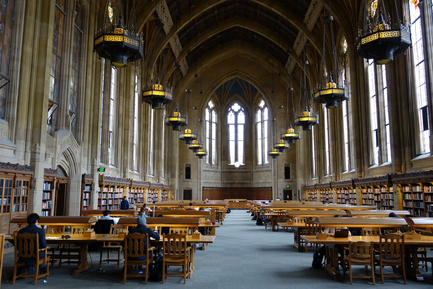
Apply to a foreign university with confidence
- Properly fulfilled documents
- Perfect motivation letter
- Support from a personal mentor
- Offers from several universities
Article score: 5 out of 5 (1 review)
How to evaluate and choose a suitable university abroad? Here are the important criteria to consider when applying.
Free consultation





When an applicant decides to enter a foreign university, they face an extremely difficult task: to choose the right one from thousands of universities around the world. How to make this difficult choice? Let's talk about the criteria that should be taken into account when applying.
Most often, applicants check international rankings. There are quite a few of them, but the main ones are
Other popular rankings include URAP, RUR, US News & World Report's, Eduniversal, and Webometrics.
Each of them has a unique methodology for evaluating universities, with its own pros and cons.
For example, QS is based on surveys of employers and academics, which allows you to understand how the university is evaluated in different sectors of society. However, it is often criticized for being biased. At the same time, ARWU is based on the academic achievements of the university but does not consider other important factors such as learning conditions and opportunities for novice researchers.
All rankings are relative. This does not mean that they are completely wrong, but it is important to take into account several nuances when studying them. For instance, it is difficult for newer universities to get into such rankings. Meanwhile, they might have state-of-the-art equipment, conduct highly specialized research, and offer small group classes.
Not all programs at even the top universities are equally developed. For example, the Massachusetts Institute of Technology is the first in the QS 2022 ranking for engineering, but for history, it occupies positions #51-100[1]. That is why it is important to look at specialized rankings and seek indicators specific to your field of study.
When reviewing rankings, you need to take into account the level of education. If you are applying for a PhD, check if the university has scientific journals and their citation index, which can be found in the ARWU and QS rankings. If you are a prospective bachelor's student not planning a scientific career, look at employment rates and reputation among employers.
More about: World university rankingsThe cost of education is one of the most important criteria when choosing a university abroad. The most expensive countries to study in are the UK and the USA, followed by Canada, Australia, New Zealand, and Singapore. The cost is slightly lower in Western Europe and Asia. The most affordable education is in Eastern Europe and the Baltic countries. Of course, this is fairly average data. When assessing the budget required for a particular university, many factors must be examined:


From the university's statistics, published by admission committees on the website, it is important to pay attention to the following:

University life is not just about lectures, seminars, and research. Social, cultural, and sports activities broaden your horizons and develop soft skills.

How difficult is it to get a student visa? Several factors can affect this: your visa history, the minimum amount on your bank account, and even compelling reasons to return to the home country after graduation.
But there is another very important requirement that applies to the university: it must be among the accredited educational institutions. This requirement exists in Canada, the USA, South Korea, and other countries.
Visa restrictions sometimes apply to employment. Not all countries allow international students to work while studying. Sometimes the restriction is partial — on average no more than 20-25 hours per week (part-time) during term-time and 40 hours per week (full-time) during the holidays. The university may also have additional rules. For example, the UK allows students to work up to 20 hours a week, and the University of Cambridge limits its students to only 10 hours.
Your future depends on the job opportunities the university offers, so it is crucial to consider them before enrolling.
60+ countries
we work with
$1,000,000 saved
by students through scholarships
6,400 offers
our students got